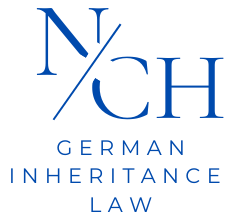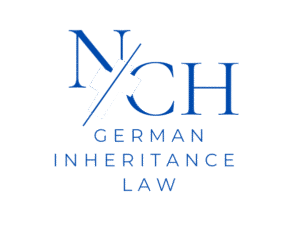Executor of the Will (Testamentsvollstrecker) in Germany: Duties, Powers, and Benefits
An inheritance in Germany can quickly become complicated—especially when multiple heirs, international assets, or tax obligations are involved. One of the most effective tools for preventing disputes and ensuring smooth estate administration is the appointment of an executor (Testamentsvollstrecker). The executor is not an heir, but a trusted person or institution chosen by the testator to carry out their last will. For U.S.-based families with German assets, a properly appointed executor often makes the difference between an orderly distribution and years of litigation.
Under German law, an executor is appointed by the testator through a will or inheritance contract. Unlike heirs, the executor does not inherit ownership of the estate but is empowered to manage it. They act as a representative of the heirs and third parties, ensuring debts are paid, assets are safeguarded, and the estate is divided in accordance with the will. Depending on the appointment, the executor’s role may be temporary—focused on winding up the estate—or long-term, particularly where minors, real estate, or business assets are involved.
- Your Will, Carried Out Exactly as You Intended.
- Why Appoint an Executor?
- Role and Responsibilities of an Executor
- Types of Executors in Germany
- Executor vs. Heir
- Compensation of Executors
- Tax and Compliance Duties
- Termination of the Executor’s Role
- Frequently Asked Questions (FAQs)
- 5 Top Tipps
- Conclusion
Why Appoint an Executor?
There are many reasons why a testator may choose to appoint an executor:
- To ensure that legacies (Vermächtnisse) and charitable bequests are carried out.
- To protect young, inexperienced, or incapacitated heirs.
- To prevent disputes within a community of heirs (Erbengemeinschaft).
- To simplify cross-border estates involving Germany and the U.S.
- To manage complex assets such as companies, real estate, or valuable art collections.
For international families, an executor is often indispensable: heirs living in different time zones or countries may otherwise be unable to cooperate effectively.
Role and Responsibilities of an Executor
The executor’s main duties include:
- Securing the estate: safeguarding bank accounts, locking real estate, protecting valuables.
- Preparing an inventory: listing all assets and debts.
- Managing the estate: continuing business operations, paying ongoing expenses, and selling assets if required.
- Settling debts: ensuring creditors, tax authorities, and compulsory share (Pflichtteil) claimants are satisfied.
- Dividing the estate: preparing a distribution plan and executing it in compliance with the law and the will.
- Accounting and reporting: keeping heirs informed and providing annual reports if administration lasts more than one year.
The executor acts independently but must always serve the testator’s intent and the heirs’ best interests.
Step 1
Step 2
Get a Legal Roadmap
Step 3
We Handle Everything
Types of Executors in Germany
German law recognizes different executor roles:
- Settlement Executor (Abwicklungsvollstrecker): focuses on winding up the estate quickly and distributing assets.
- Administrative Executor (Verwaltungsvollstrecker): manages the estate over an extended period, for example to administer real estate or protect heirs from creditors.
- Long-Term Executor (Dauervollstrecker): appointed for up to 30 years, often where minors are involved or where wealth should be preserved across generations.
Executor vs. Heir
It is important to distinguish between heirs and executors. Heirs become legal owners of the estate and are jointly liable for its debts. Executors, by contrast, do not own the estate but have the authority to manage it. They can sell assets, settle debts, and represent the estate in court. This separation of roles often prevents conflicts and ensures professional management.
Compensation of Executors
German law does not fix executor compensation. It can be:
- Defined in the will or inheritance contract.
- Agreed upon with the heirs.
- Determined by the probate court based on the size and complexity of the estate.
Common practice includes either hourly billing or a percentage of the estate’s value. Professional executors (lawyers, banks) typically follow standardized fee schedules.
Tax and Compliance Duties
Executors also play a central role in tax compliance. Their duties include:
- Filing the inheritance tax return with German tax authorities.
- Applying for a clearance certificate (Unbedenklichkeitsbescheinigung).
- Coordinating with U.S. tax advisors in cross-border cases to avoid double taxation.
Failure to comply with these duties can expose heirs to liability and penalties.
Termination of the Executor’s Role
An executor’s role ends when the estate is fully distributed, or when the appointed period expires in the case of long-term administration. Executors can be removed by the probate court if they breach their duties, mismanage assets, or act against the testator’s intent.
Frequently Asked Questions (FAQs)
5 Top Tipps
- Appoint an executor if heirs are numerous, underage, or living abroad.
- Define the executor’s powers clearly in the will to avoid disputes.
- Consider appointing a professional executor for large or complex estates.
- Set fair but realistic compensation—too little discourages, too much burdens the estate.
- Ensure international coordination: align executor provisions with both German and U.S. estate planning tools.
Conclusion
Appointing an executor is one of the most powerful tools in German inheritance law. It ensures that estates are administered efficiently, debts and taxes are paid, and heirs receive their shares without destructive conflict. In cross-border situations, a carefully chosen executor bridges the gap between U.S. and German legal systems, providing stability and clarity.
German Attorney Nicola Casper-Hoesl advises clients on appointing, structuring, and supervising executors—ensuring estates are managed with precision, compliance, and respect for the testator’s will.
Nicola is very knowledgeable about German /International Law and listens to her clients’ needs during challenging times in their lives.
She is very kind , responsive and efficient in her email & phone conversations. I was delighted to work with her in solving my niece’s case.
I highly recommend Nicola if someone needs any law advice about Inheritance or German/International law cases.
Nicola is an exceptional attorney with extensive knowledge in German inheritance law. Navigating international legal matters can be frustrating and complex, but Nicola made the process smooth and stress-free. Her professionalism along with clear communication were invaluable throughout the entire ordeal.
If you are in need of a knowledgeable, reliable, and supportive lawyer for inheritance matters involving Germany, Nicola is the best choice! I highly recommend her.
During a very challenging time both emotionally and logistically, I could always count on Nicola. She expertly guided me through the ins and outs of German inheritance law. It was a pleasure to work with her.
Provided expert legal guidance through a very complex inheritance situation involving German banks, courts, and tax authorities. Extremely detailed, diligent, and knowledgeable. I would not have been able to resolve all the legal issues without her help. Very highly recommended!
Nicola helped our family recover a €250k inheritance stuck in German probate—without us ever leaving California. Her team handled everything in 8 months.

